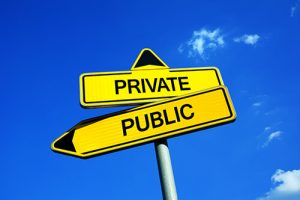Premises Liability: When You Fall on Public Property
Posted October 20th, 2016 by Anthony Carbone, PC.
Categories: Premises Liability.
 Public property. What exactly do we mean by this term? As we continue to discuss premises liability claims, we’ll concentrate on fall down accidents on public property. It’s important to know what constitutes public property. And, how a slip and fall claim on public property is different than one on commercial or residential grounds.
Public property. What exactly do we mean by this term? As we continue to discuss premises liability claims, we’ll concentrate on fall down accidents on public property. It’s important to know what constitutes public property. And, how a slip and fall claim on public property is different than one on commercial or residential grounds.
So, what exactly is public property? The New Jersey Administrative Code offers some guidance as far as property classification:
- “Public School Property” means real property owned by Federal, State, county or local governments or their agencies used for public education.
- “Public Property” means real property owned by Federal, State, county or local governments or their agencies and devoted to public uses.
Now that you understand the basic definition of public property, let’s go on to expanding it. We also want to make sure you understand why it’s important to see an experienced premises liability attorney sooner than later.
Public Property Accidents Are Claims against Public Entities
When someone falls on public property, their injuries may warrant a claim against a public entity. On a state level, the law says that a public entity “includes the State, and any county, municipality, district, public authority, public agency, and any other political subdivision or public body in the State.” Obviously, federal laws define public entities in a similar fashion. Lawsuits against public employees also fall under this portion of the law.
We mentioned that slip and fall accidents on public property are different than other types of claims. There is actually an entire chapter of the New Jersey State Statutes when it comes to pursuing negligence claims against public entities. The subtitle of the law is known as the New Jersey Torts Claims Act.
Claims against public entities are unique. The law provides immunity from liability in some circumstances. An experienced personal injury attorney evaluates claims to determine if a cause of action would pass the immunity test. And, makes sure to file a Notice of Claim.
Notice of Claim? What’s that, you ask? Quite simply, it’s a notice to the public entity that you intend to make a claim against them. It must be filed within ninety days of the accident. In select cases, a court may allow the notice requirement to be extended for one year.
You should know the types of claims that require a Notice of Claim. It could mean slipping and falling on a sidewalk. Or, inside the local courthouse. We’ve already written about falling at PATH stations. The list of public entities might also surprise you.
What do we mean? Some public entities are easily identifiable. State and local buildings are one example. For clarification, here’s a list of some public entities that you may or may not recognize as such:
- Port Authority of New York and New Jersey
- New Jersey Transit
- Various housing authorities such as Jersey City Housing Authority
- Boards of Education
- State or community colleges
Contact Us
The Law Offices of Anthony Carbone has handled many premises liability cases against public entities. Contact us to see how we can assist you.


